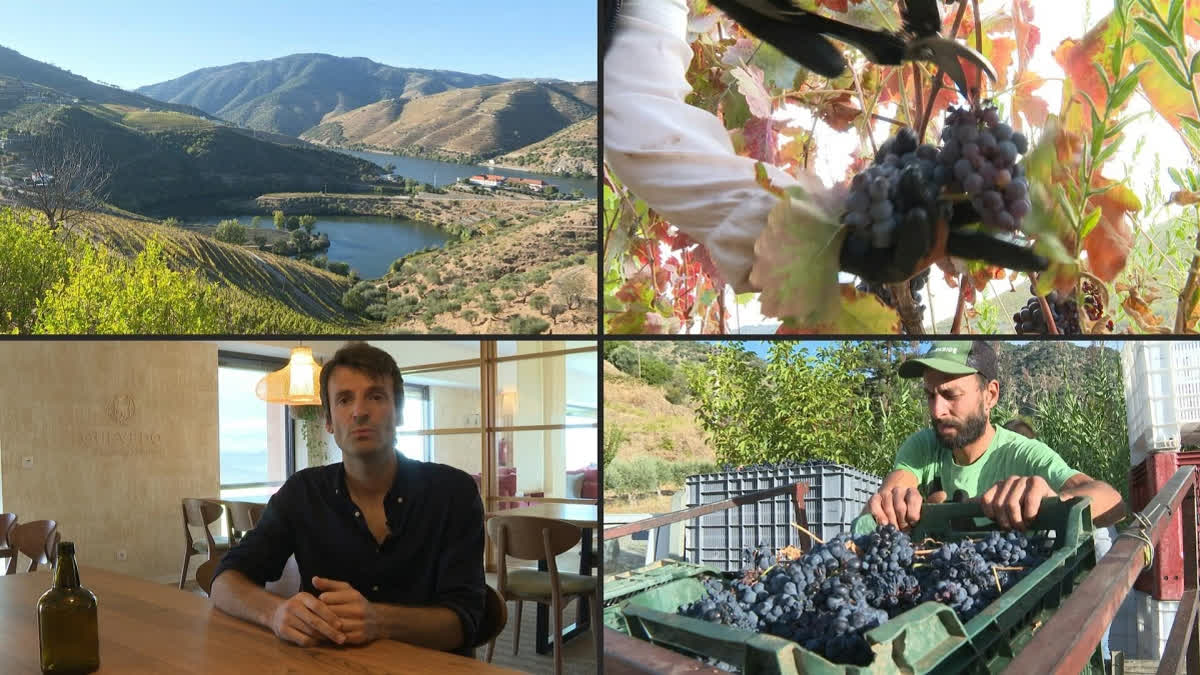Portugal: Jose Manuel Ferreira should have already started harvesting grapes on his century-old vineyard in northern Portugal -- instead he is still looking for a buyer for his crop." I used to sell my grapes to a cooperative, but this year they refused me," the 74-year-old told AFP in Sao Joao da Pesqueira, in the heart of the Douro wine region. "We feel abandoned. It's revolting," he said.
His plight is repeated across the Douro Valley, known for its endless swathes of vineyards cascading down lush green hills on tiered terraces carved over the centuries. The cause: sluggish sales of the region's famous sweet port wine and overproduction. Roughly 20,000 winegrowers operate along the banks of the River Douro, which winds its way across northern Portugal before spilling out into the Atlantic at Porto, the country's second-largest city, where major wineries are based.
Most vineyards in the region belong to several owners, who cultivate small plots averaging just two hectares (five acres) and generally sell their output to groups operating large estates known as "quintas". Port wine, which is made by adding brandy during fermentation, was invented by the British in the 18th century and went on to become one of Portugal's most famous exports.
'Can't compensate'
The Upper Douro region, which in 2001 was added to the United Nations' cultural heritage list, produces port wine and table wine, with both enjoying a protected designation of origin status. This means they can be made only in the region according to a set of production specifications. While sales of Douro table wines are rising, those of port wines -- which are more profitable -- have fallen steadily in recent years because of changing consumer habits.
Wine consumption has decreased globally, especially so for products like port wine that are traditionally drunk before meals to stimulate the appetite. The volume of port wine sold annually has fallen over the last 15 years by a quarter to nearly 65 million litres in 2023. "Douro table wines can't compensate for the fall in port wine sales," said the head of Portuguese wine promotion body ViniPortugal, Frederico Falcao.
